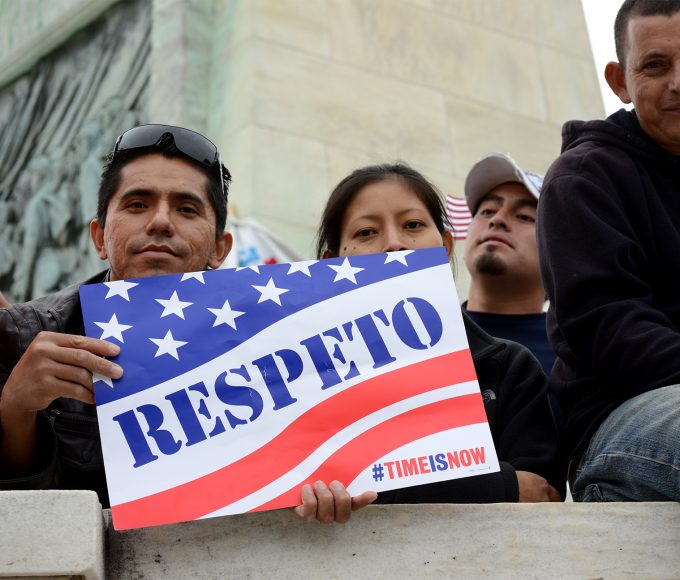The advent of Artificial Intelligence (AI) has ushered in a new era of technological innovation, promising to revolutionize industries, streamline processes, and enhance the quality of life. Yet, as we stand on the brink of this digital frontier, it’s crucial to examine the implications for diverse populations, particularly for Latino communities. This article explores the multifaceted impact of AI on Latino populations, highlighting both the opportunities for empowerment and the challenges that need to be navigated to ensure equitable outcomes.
AI’s potential to transform education, healthcare, and employment offers a beacon of hope for addressing long-standing disparities faced by Latino communities. However, realizing this potential requires a concerted effort to mitigate biases and bridge the digital skills gap.
Empowering Education and Healthcare
AI-driven platforms are redefining the landscape of education and healthcare, offering personalized learning experiences and healthcare services tailored to individual needs. For Latino communities, this presents an opportunity to overcome barriers to education and healthcare access, fostering equity and inclusivity. AI can play a pivotal role in diagnosing diseases with greater accuracy, managing chronic conditions more effectively, and providing educational resources that adapt to the learner’s pace and style, thereby addressing some of the systemic challenges faced by these communities.
Revolutionizing the Workforce
The automation of tasks presents an opportunity for workforce transformation. By automating manual and repetitive jobs, AI frees individuals to pursue roles that require creativity, critical thinking, and emotional intelligence. For Latino workers, this shift offers a path to more secure, fulfilling, and higher-paying jobs. However, seizing these opportunities requires access to training and education in digital skills, underscoring the importance of initiatives aimed at enhancing digital literacy within these communities.
Navigating the Challenges
On Mitigating Bias and Inequality: While AI offers significant benefits, there’s a real risk that it could perpetuate or even exacerbate existing inequalities. AI systems are only as unbiased as the data they’re trained on, and without careful consideration, they could reinforce stereotypes and discrimination. For Latino communities, this risk is particularly acute in areas such as employment, where AI-driven hiring tools could inadvertently filter out qualified candidates based on biased criteria. Addressing these challenges requires a commitment to ethical AI development, including diverse representation in AI research and development teams, and the implementation of guidelines and standards to prevent bias.
Bridging the Skills Gap
The digital transformation driven by AI necessitates a workforce equipped with the requisite skills. For many in the Latino community, this highlights the need for accessible education and training programs. Bridging this skills gap is not just about providing technical training; it’s also about fostering an environment that encourages lifelong learning and adaptability. Community initiatives, public-private partnerships, and educational reforms play a crucial role in preparing Latino populations for the digital economy.
The Role of Spanish Language AI
The development of Spanish language AI tools is critical for ensuring that AI technologies are accessible and relevant to Latino communities. These tools can facilitate access to information, services, and opportunities, breaking down language barriers and promoting inclusivity. From customer service chatbots to educational resources, Spanish language AI has the potential to make a significant impact on the accessibility of services and information for Spanish-speaking populations.
Cultivating an Inclusive AI Future
The path to an inclusive AI future involves several key strategies:
- Increasing Representation: Efforts must be made to increase the representation of Latino professionals in AI research, development, and decision-making processes. This includes scholarships, mentorship programs, and targeted recruitment efforts to ensure that the voices and perspectives of Latino communities are reflected in AI development.
- Ethical AI Development: Establishing and adhering to ethical guidelines for AI development is essential to prevent the perpetuation of bias and discrimination. This includes transparency in AI algorithms, ongoing monitoring for biased outcomes, and the inclusion of diverse datasets that reflect the heterogeneity of human experiences.
- Community Engagement and Education: Engaging with Latino communities to understand their needs and concerns regarding AI is crucial. Education and awareness campaigns can demystify AI, highlight its potential benefits, and address concerns about privacy, security, and job displacement.
- Public Policy and Regulation: Governments play a crucial role in shaping the AI landscape. Policies and regulations that promote equitable access to AI technologies, protect against discriminatory outcomes, and support the development of digital skills are vital for ensuring that AI benefits all segments of society.
As AI continues to shape the future, its impact on Latino communities holds both promise and challenges. By embracing the opportunities for empowerment and diligently addressing the challenges, we can navigate towards a future where AI serves as a tool for inclusivity and equity. The journey toward an inclusive AI era is complex, but with a collective commitment to diversity, ethical development, and community engagement, we can ensure that the benefits of AI are shared by all.
The integration of AI into our lives is not a question of if but when. As such, the dialogue around AI and its implications for diverse communities, particularly those of Latino descent, must continue to evolve. By fostering an environment of collaboration and innovation, we can unlock the full potential of AI to serve as a catalyst for positive change, bridging divides and building a more inclusive and equitable future for everyone.
















